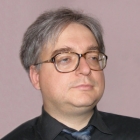Jesteś tutaj: Publicystyka » Adrian Nikiel » Polish Independence Day AD 2020 — a public address (October 7th, 2020)
Polish Independence Day AD 2020 — a public address (October 7th, 2020)
Adrian Nikiel

Ladies and gentlemen,
Thank you for inviting me to a celebration of Polish Independence Day that is forgotten by so many. For over 30 years I have had the honour to represent the Legitimist camp, Organization of Polish Monarchists and Legitimist Portal are institutional emanations of which. After three decades of struggle for the restitution of monarchy in our homeland I would like to share with you some reflections about our indigenous royalism and its ideological foundations.
We are gathering on October 7th to celebrate a great event of our national past, but we also look ahead to another holiday, in this year falling on October 25th – the Feast of Christ the King instituted by Pope Pius XI. On the anniversary of the manifesto by Regency Council we shall therefore look into the future. One cannot understand, one cannot interpret Polish Independency, both in its holiday and everyday edition, without considering the ideological message included in words: Christ the King.
True freedom, true independence is achievable only under the rule of our Lord Jesus Christ. To let the restoration succeed, we need therefore to recognize in Him the source of all lawful rule. Kings rule through Him. This means that a ruler and government who have forsaken God’s law, who reckon more with a false deity of public opinion than with the Decalogue, are a legal authority, at least in most cases, when procedures written in acts of law are followed, but they are not a legitimate authority. In certain cases, when the succession order has been observed, one can describe the legitimacy as flawed – even if they have preserved legitimacy of origin, they have lost legitimacy of purpose.
The final purpose of legitimist order is the salvation of subjects. A monarch, whom we await, must be a vicar of Christ, a lieutenant of God, a pontifex bringing together hierarchy of Kingdom of God and the state rule over which was entrusted to him. Frankly speaking, we expect that he will be a catholic traditionalist, who behaves in a consequent and unambiguous manner, without hesitation and compromises he rejects modernism and other heresies. We should hold dear the words of the Pope Pius IX, the continuous important warning: Poles seek for Poland, but they do not seek Kingdom of God and therefore they do not have Poland. No matter who shall be the king, who and when shall found new Polish dynasty, he needs to bear this in mind. First the Kingdom of God and everything that Poland needs, will be given to us.
***
What are the tasks that await Polish monarchists in 21st century? Are there any questions specific for legitimists in Wrocław, which refer to genius loci?
We are standing in special places – under the monument of King Bolesław the Brave. Seventy five years ago at this spot there was a monument of King of Prussia William I. In the aftermath of clash of two totalitarian regimes in Festung Breslau and intended devastation carried out after 1945 many objects, which would create a wonderful ducal-royal-imperial trail throughout Wrocław, perished from the face of the earth. Soviet lackeys, communists, under the disguise of repolonization of Wrocław and Silesia covered traces of monarchy in this land, which was a jewel in the crown of a number of states. A few centuries of the history of our little homeland were heavily censored. According to popular exposition of the matter during so called People’s Poland history of Wrocław after 14th century sinks into oblivion only to reemerge after 1945. We still need to cover these white spots.
Therefore with all force I wish to emphasize that as conscious royalists we cannot confine ourselves only to cultivate traditions of our indigenous monarchy. Paraphrasing words of Leszek Gembarzewski – he is not a real royalist he who would like to institute monarchy in his own country, but on the other side of the border accepts republican regimes. In order to achieve a better understanding the place, where we live and which is, I dare to say, the capital of modern Polish monarchism we should alike learn about history and stive for a better understanding of monarchist ideas and political systems of the Crown of Saint Wenceslas, Kingdom of Prussia and other parts of the Holy Empire. Learn what we share and differentiate us from the monarchists behind Oder and Sudetes.
Someone who may not be a legitimist can ask why that is important. Wrocław is a particular place, since it once was a capital of senior line of House of Piasts, male line of which died out in 18th century. Their descendants are still alive though: on the distaff line royal tribe of Piast survived amid German-speaking aristocracy, including duces of Racibórz, Schaffgotsch and Hochberg families, the Royal House of Wettin and Prussian kings. Wrocław has already been one of the two centers of equal rank in the Crown of Saint Wenceslas and it has been one of the three capitals of Kingdom of Prussia. Today it is also a natural point of reference, a partner to cooperate with for the most Polish city on the other side of Lusatian Neisse – Dresden, which is full of testimonies of our national pride.
I believe that from here, from under the monument of King Bolesław the Brave there shall go forth the spark, which shall lead to reinstitution of legitimate rule: a catholic, hierarchical, decentralized, anti-parliamentary and anti-democratic monarchy.
Shall it be so – it depends on you as well. Long live Poland!
translated by: Mateusz Wierzbowski
- Strona główna
- Organizacja
- Ogłoszenia i aktualności
- Publicystyka
- „Rojalista”
- „Młodzież Imperium”
- Multimedia
- prof. Jacek Bartyzel
- Królewski Paryż
- Linki
- Kontakt

